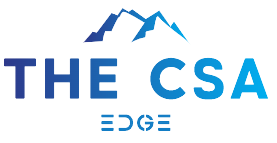Michael Dell is a renowned American entrepreneur, philanthropist, and the founder of Dell Technologies, a global leader in technology solutions. Over the years, he has transformed the tech industry with his innovative approach to personal computing. Read More
In this article, we explore the details behind Michael Dell net worth and how his business acumen has led him to incredible financial success. We’ll also look at the sources of income that have contributed to the growth of Michael Dell net worth over the years. Michael Dell, the visionary entrepreneur behind Dell Technologies, has built a fortune that places him among the wealthiest individuals in the world. As of December 2024, Michael Dell net worth in real-time is an astounding $117.8 billion, according to Forbes. This places him at #11 on the global wealth rankings, demonstrating the immense success he has achieved over the years. Michael Dell’s wealth is primarily derived from his position as the founder, chairman, and CEO of Dell Technologies, the company he founded in 1984. The company, which started as a small PC manufacturer, has grown into a global technology leader. However, Dell’s journey from a college student with a vision to a billionaire tech mogul has not been without its complexities, marked by strategic investments, mergers, and restructuring. Dell Technologies, the company that catapulted Michael Dell to fame, is the primary driver of Michael Dell net worth. The company’s transformation from a PC manufacturer to a full-fledged tech enterprise has been instrumental in shaping his fortune. In 2016, Dell Technologies became even more powerful after a massive $60 billion merger with EMC, a leader in computer storage technology. This merger significantly expanded the company’s market reach and influence in the tech sector. Furthermore, Dell’s decision to return to public markets in 2018 through a complex financial restructuring marked a critical moment for both the company and Michael Dell net worth. A significant portion of Michael Dell net worth is tied to his investments in cloud software and the spinoff of VMware. In 2021, VMware, a cloud software arm of Dell Technologies, was spun off, a strategic move that would later pay off when Broadcom acquired it in 2023 for $69 billion. Dell’s ownership stake in VMware allowed him to receive 39% of the proceeds from this deal, which translated to billions of dollars being added to his wealth. This strategic move continues to solidify Michael Dell net worth as he diversifies his investments in cloud computing and other high-growth sectors. While Dell Technologies serves as the cornerstone of Michael Dell net worth and fortune, his private investment firm, DFO Management, also plays a significant role in his financial portfolio. This firm, which has stakes in various industries including hotels and corporate credit investments, adds a significant layer of diversity to Michael Dell’s wealth. Through DFO Management, Dell has been able to invest in high-growth areas beyond technology, further bolstering Michael Dell net worth which is already impressive. Real estate also plays a crucial role in the composition of Michael Dell net worth. In addition to his investments in private equity and technology, Michael Dell owns substantial real estate holdings, including properties in some of the most prestigious locations in the world. One notable investment was in Malibu’s exclusive Broad Beach neighborhood. In 2012, it was revealed that Dell, along with other high-net-worth individuals, owned a property in the area. The neighborhood was affected by beach erosion, leading to a controversial plan to dredge sand from the ocean floor to reinforce the coastline. While the plan attracted opposition from environmental groups, it highlights Dell’s substantial real estate investments and his involvement in high-profile community projects, further solidifying Michael Dell net worth. Michael Dell is not just known for his tech empire and investment acumen; he is also recognized for his philanthropic contributions. In 2023, he made a significant donation of $3 billion in cash and stock to his foundation, the Michael & Susan Dell Foundation, which focuses on tackling issues related to child poverty. This philanthropic act further showcases his commitment to creating lasting social impact. Philanthropy, while reducing his available wealth, reflects a significant part of the way Michael Dell chooses to use his financial resources. His philanthropic efforts extend beyond his foundation to other donor-advised funds, where he has used his wealth to support causes that aim to improve education, health, and economic stability for underserved populations. These donations have only enhanced his reputation as a responsible billionaire. Michael Dell net worth is fueled by a variety of sources, all linked to his strategic vision in both technology and investments. Below is a breakdown of the major sources that contribute to his impressive wealth: As the driving force behind the company, Michael Dell net worth and personal wealth is directly tied to the company’s performance. The merger with EMC, the spin-off of VMware, and other key investments have been instrumental in his success. Dell’s private investment firm, which includes stakes in hotels, liquid corporate credit, and various private equity investments, has significantly diversified his wealth. Dell’s investments in exclusive properties, particularly in high-demand areas like Malibu, contribute to Michael Dell net worth. His involvement in community projects and real estate developments has proven to be financially rewarding. While philanthropy reduces his available wealth, Dell’s giving reflects a significant portion of his financial portfolio and long-term financial planning. His foundation continues to have a positive impact on society. Dell’s ventures into high-growth sectors like cloud computing, microchips, and corporate credit ensure that his wealth continues to expand even outside the traditional tech industry. Michael Dell net worth has earned him a prominent position in Forbes rankings year after year. In the Forbes 400 list of 2024, he ranked #12, making him one of the wealthiest individuals in the United States. Additionally, Dell is ranked #16 in the world on the Forbes Billionaires List of 2024, further cementing his status as a global financial powerhouse. Dell’s place on these lists showcases the sustained growth and resilience of his wealth over time. Despite fluctuations in the market, Dell’s strategic investments, leadership in Dell Technologies, and savvy financial decisions have consistently placed him among the top billionaires worldwide. His innovative approach to business, coupled with his diversified portfolio, is what keeps him at the forefront of Forbes’ rankings. Despite his enormous wealth, Michael Dell is known for living a relatively private life compared to other billionaires. He and his family reside in some of the world’s most exclusive locations, and he enjoys a lifestyle befitting his status as a tech mogul. However, he is also known for being a disciplined wealth manager, consistently seeking opportunities to grow Michael Dell net worth through strategic investments, mergers, and acquisitions. Dell’s commitment to giving back through his foundation also sets him apart from other billionaires who may focus more heavily on accumulating wealth rather than using it for social causes. His philanthropic efforts are an essential part of how he manages his wealth, contributing to his lasting legacy. Looking ahead, Michael Dell net worth is likely to continue growing as Dell Technologies remains a significant player in the tech sector, particularly with its focus on cloud computing, data storage, and software solutions. Additionally, Dell’s diversified investments, particularly in private equity, are poised to yield significant returns as emerging markets continue to expand. The future of Michael Dell net worth appears bright, with his strategic leadership, keen eye for high-growth investments, and philanthropic focus continuing to define his financial journey. As he explores new business avenues and supports causes close to his heart, Michael Dell’s wealth will undoubtedly continue to make an impact on both the business world and society. Michael Dell, the founder of Dell Technologies, is a name synonymous with innovation and entrepreneurial brilliance. His journey from a curious child with a knack for disassembling gadgets to becoming one of the world’s wealthiest individuals is nothing short of extraordinary. A closer look at Michael Dell’s early life, family background, and academic journey reveals how these elements came together to shape the visionary leader who would revolutionize the tech industry. Michael Saul Dell was born on February 23, 1965, in Houston, Texas, to a middle-class family. From a young age, Michael exhibited curiosity and an entrepreneurial spirit that set him apart from his peers. As a child, he was fascinated by machines and electronics, often taking apart household appliances to understand how they worked. This innate curiosity would later lay the foundation for his groundbreaking achievements in technology. Dell’s early fascination with business was evident when, at just eight years old, he opened his first bank account. He displayed an uncanny ability to think ahead, recognizing the potential of financial growth. This early exposure to the importance of managing money would become a cornerstone of his entrepreneurial ventures later in life. Michael Dell was raised in a loving and academically inclined family. His father, Alexander Dell, was an orthodontist, while his mother, Lorraine Charlotte Dell, worked as a stockbroker and financial consultant. His parents instilled in him the values of hard work, education, and intellectual curiosity, which would deeply influence his later choices. Lorraine’s career in finance was particularly significant in shaping Michael’s interest in economics and investments. Her discussions about financial markets at home exposed him to the complexities of the business world at an early age. This early exposure to financial literacy helped Michael understand the importance of strategic planning and investments, skills that would become critical in his career. Despite their encouragement, Michael’s parents initially struggled to understand his entrepreneurial ambitions. Like many parents, they envisioned a traditional career path for their son, encouraging him to pursue medicine. However, Michael’s desire to carve out his own path in the business world was unwavering. Michael Dell credits much of his entrepreneurial mindset to observing real-world business challenges and opportunities. While his parents served as his first role models, he also drew inspiration from figures in the business world. He admired self-made entrepreneurs who defied odds to create innovative solutions. Dell’s ability to identify inefficiencies and transform them into opportunities became apparent early on. For example, as a teenager, he noticed the inefficiencies in how businesses marketed newspaper subscriptions. By targeting newlyweds and offering tailored subscription packages, Michael earned $18,000 in a single summer. This achievement not only highlighted his entrepreneurial acumen but also marked the beginning of his journey as a businessman. Michael Dell’s formal education played a crucial role in nurturing his technical skills and entrepreneurial mindset. He attended Herod Elementary School in Houston and later graduated from Memorial High School, where his love for technology began to flourish. While his academic performance was strong, it was his extracurricular pursuits that truly set him apart. In high school, Michael began experimenting with computers, teaching himself how to assemble and disassemble them. This hands-on approach to learning allowed him to develop a deep understanding of hardware, which would later become the foundation of his company. In 1983, Michael Dell enrolled at the University of Texas at Austin, intending to major in pre-med, as per his parents’ wishes. However, his passion for computers soon took precedence over his academic commitments. While living in a dormitory, Michael started a small business upgrading personal computers. He saw an opportunity to offer more affordable and customized PCs, targeting consumers who were dissatisfied with the limited options available in the market. Operating out of his dorm room, Dell launched PCs Limited, a precursor to Dell Technologies. The venture quickly gained traction, and by the end of his freshman year, Michael decided to drop out of college to focus on his burgeoning business. This bold decision marked a turning point in his life, paving the way for the creation of a tech empire. Several pivotal moments during Dell’s early years highlight the development of his entrepreneurial instincts: Michael’s fascination with dismantling and rebuilding gadgets was more than just a hobby—it was an early indicator of his innovative mindset. This hands-on approach to learning taught him the importance of understanding the intricacies of technology, a skill that would later define his career. From selling newspaper subscriptions to reselling computer parts, Michael’s ability to identify market inefficiencies and capitalize on them set him apart from his peers. His knack for sales and marketing, combined with his technical expertise, laid the groundwork for his future success. Although initially hesitant about Michael’s decision to drop out of college, his parents eventually supported his entrepreneurial ambitions. Their encouragement and understanding allowed Michael to take calculated risks, knowing he had a strong support system to fall back on. Like many successful entrepreneurs, Michael Dell faced his share of challenges in his early years. Balancing his parents’ expectations with his own ambitions was one of the first hurdles he had to overcome. Additionally, the decision to drop out of college was not without its risks, as it went against the traditional path to success that his parents had envisioned for him. However, these challenges only fueled Michael’s determination to prove himself. By the time he left the University of Texas, his company was generating significant revenue, validating his decision to pursue his passion. The early challenges he faced taught him resilience, adaptability, and the importance of following one’s instincts. Michael Dell’s journey highlights the interplay between formal education and practical experience. While his time at the University of Texas provided him with exposure to new ideas, it was his hands-on experience in building and selling computers that truly prepared him for the challenges of entrepreneurship. Key lessons from his early years include: Michael’s success in selling customized PCs stemmed from his understanding of customer needs. By offering tailored solutions at competitive prices, he differentiated himself from established competitors like IBM and Hewlett-Packard. From streamlining supply chains to eliminating unnecessary costs, Michael’s focus on efficiency became a hallmark of Dell Technologies. Dropping out of college to pursue a business idea was a bold move, but it underscored Michael’s willingness to take calculated risks—a trait that would define his career. Michael Dell’s leadership has been the cornerstone of Dell Technologies’ rise from a dorm-room startup to one of the most influential technology companies in the world. His ability to innovate, anticipate market trends, and implement customer-centric solutions has cemented Dell Technologies as a global leader in the IT sector. This comprehensive overview examines Michael Dell’s pivotal role in the company’s success, significant milestones in its journey, and where the brand stands today in a fiercely competitive industry. In 1984, Michael Dell founded PCs Limited (later renamed Dell Inc.) with a simple but revolutionary idea: sell computers directly to customers, bypassing the traditional retail model. This direct-to-consumer approach allowed the company to offer competitively customised personal computers. Dell’s innovative business model disrupted the industry, enabling faster delivery times and improved customer satisfaction. By 1986, the company had introduced the Turbo PC, its first self-designed computer, marking its entry into the market as a manufacturer rather than a reseller. This product’s success validated Dell’s business strategy and set the stage for rapid growth. Michael Dell’s focus on customer needs has been instrumental in shaping the company’s strategy. From the beginning, he emphasized building long-term relationships with customers by providing high-quality, tailored solutions. Key aspects of his leadership include: These strategies not only fueled Dell’s early success but also set benchmarks for operational excellence in the tech industry. Milestones in Dell’s Journey In just four years, Dell’s meteoric growth led to its initial public offering (IPO) in 1988. The IPO raised $30 million, valuing the company at $85 million. This milestone marked Dell’s transition from a promising startup to a major player in the tech industry. The 1990s saw Dell Technologies dominate the PC market. By focusing on e-commerce, Dell became one of the first companies to successfully sell products online. By 1999, Dell had surpassed Compaq as the world’s largest PC manufacturer, achieving annual revenues of $25 billion. Recognizing the limitations of relying solely on the PC market, Michael Dell spearheaded the company’s diversification into servers, storage, and IT services. In 2007, Dell rebranded as Dell Technologies, reflecting its broader portfolio and ambitions. In a bold move, Michael Dell took the company private in 2013 through a $24.4 billion leveraged buyout, one of the largest in history. This decision allowed Dell Technologies to restructure and focus on long-term goals without the pressures of quarterly earnings reports. One of Dell Technologies’ most significant milestones was its $60 billion acquisition of EMC Corporation, a leader in data storage and cloud computing. This merger, the largest tech acquisition at the time, positioned Dell Technologies as a global leader in enterprise IT. The Brand Today: Dell Technologies’ Position in the Industry Under Michael Dell’s leadership, Dell Technologies has become a dominant force in IT infrastructure, offering end-to-end solutions across hardware, software, and services. The company serves 98% of Fortune 500 companies, highlighting its widespread adoption in enterprise environments. As of 2024, Dell Technologies generates over $102 billion in annual revenue, with significant contributions from its PC division, enterprise solutions, and software services. It remains one of the top PC manufacturers globally, competing with giants like HP and Lenovo. Dell Technologies has made significant strides in cloud computing and data management. The company’s partnerships with industry leaders like Microsoft and VMware have strengthened its position as a key player in hybrid cloud solutions. Michael Dell’s leadership has earned him and his company numerous accolades. Dell Technologies is consistently featured on Forbes’ lists, including the Forbes 400, Billionaires List, and Most Powerful People in Tech. From the outset, Michael Dell understood the importance of trust in building a successful brand. The company’s direct sales model allowed for transparent communication with customers, fostering loyalty that persists to this day. Dell’s relentless pursuit of innovation has been a cornerstone of its brand identity. By investing heavily in R&D, the company consistently delivers cutting-edge solutions, from sleek consumer laptops to robust enterprise systems. Michael Dell’s philanthropic efforts have enhanced the brand’s reputation. Through the Michael & Susan Dell Foundation, he has donated billions to education, healthcare, and disaster relief. Additionally, Dell Technologies prioritizes sustainability, aiming for net-zero emissions by 2050. Dell Technologies controls its supply chain to ensure efficiency and cost-effectiveness. This strategy has enabled the company to maintain competitive pricing while delivering high-quality products. By expanding into servers, storage, and cloud computing, Dell has reduced its reliance on the volatile PC market. Enterprise solutions now account for a significant portion of the company’s revenue. Dell Technologies operates in over 180 countries, with manufacturing facilities strategically located worldwide. This global presence ensures that the brand remains competitive in emerging markets. With Michael Dell at the helm, the company is poised for continued success. Emerging technologies like artificial intelligence (AI), edge computing, and quantum computing present new opportunities for growth. Dell Technologies is already investing in these areas, positioning itself as a leader in the next wave of technological innovation. Michael Dell’s rise to become one of the world’s richest and most influential tech entrepreneurs was not without its share of challenges and controversies. From navigating industry disruptions to facing scrutiny during major business decisions, Dell demonstrated resilience and strategic thinking to overcome adversity. Here’s a detailed look at the obstacles he encountered and how he managed to turn them into opportunities for growth. Challenge: How He Overcame It: Challenge: How He Overcame It: Challenge: How He Overcame It: Challenge: How He Overcame It: Post-privatization, Dell successfully repositioned the company as a leader in enterprise IT, vindicating his decision. Challenge: How He Overcame It: The acquisition became one of the most successful in tech history, solidifying Dell Technologies’ position as a leader in the IT sector. Challenge: How He Overcame It: Challenge: How He Overcame It: Challenge: How He Overcame It: Challenge: How He Overcame It: Michael Dell’s journey exemplifies resilience, adaptability, and a forward-thinking mindset. Key takeaways from his ability to overcome obstacles include: Turning Challenges into Opportunities Michael Dell’s career is a testament to the power of perseverance and strategic leadership. Despite facing significant challenges, from market skepticism to major industry disruptions, he has consistently turned obstacles into opportunities for growth. By maintaining his vision and adaptability, Dell not only overcame adversity but also built a company that remains a global leader in technology. His story serves as an inspiration for entrepreneurs and leaders navigating their own challenges in an ever-changing world. Michael Dell, the billionaire founder and CEO of Dell Technologies, is not only known for his business acumen but also for his strong commitment to family life and his diverse interests outside of work. Michael Dell married Susan Lieberman in 1989. Susan is a philanthropist and co-founder of the Michael & Susan Dell Foundation, which focuses on addressing issues like poverty, education, and healthcare. The couple shares a passion for giving back to society and working together to make a meaningful impact through their foundation. Susan has played a vital role in Michael’s life, not only as a life partner but also as a supportive figure in his entrepreneurial journey. She often takes part in their philanthropic initiatives and is known for her interest in fitness and sports. Michael and Susan Dell have four children: Alexa is known for her interest in technology and entrepreneurship. She has also been a prominent figure in the tech world and has spoken about the influence her father had on her career. Alexa is active on social media, sharing insights about her life and career. Zachary has followed in his father’s footsteps, expressing interest in entrepreneurship and technology. He has also been involved in the family’s philanthropic efforts. Juliette has a passion for equestrian sports and competes in show jumping. She has often shared her love for horses and her dedication to the sport. Kira, the youngest of the Dell children, has stayed relatively out of the public eye but remains close to her family. The Dell family maintains a strong bond, often coming together for family events despite their busy schedules. Michael Dell’s interests extend far beyond the boardroom. He enjoys a variety of activities that reflect his adventurous and curious nature: Both Michael and Susan prioritize health and fitness. They often engage in physical activities like hiking and running. Michael is passionate about traveling and exploring new destinations. This interest aligns with his love for learning and curiosity about the world. Michael Dell’s entrepreneurial spirit was evident early in life. At age 15, he earned $18,000 by selling newspaper subscriptions and investing in stocks. Dell is known to have a passion for luxury cars and has owned a few iconic models over the years. At the age of 27, he became the youngest CEO of a company listed in the Fortune 500, showcasing his extraordinary leadership abilities. Dell started his company from his dorm room at the University of Texas. He famously used $1,000 to kickstart his business, which grew into a global tech giant. Michael and Susan Dell own a lavish home in Austin, Texas, famously known as “The Castle.” The estate spans 33,000 square feet and features high-tech amenities. The Dell family’s philanthropic endeavors are a testament to their shared values. Through the Michael & Susan Dell Foundation, they have donated billions to causes aimed at improving the lives of underserved communities. The foundation’s focus on children’s welfare, education, and health reflects the family’s commitment to creating a better world. Despite his incredible success, Michael Dell prioritizes his role as a husband and father. His ability to balance a demanding career with a rich family life is a testament to his values and discipline. By staying grounded and making time for his loved ones, Dell has cultivated a life that blends professional achievement with personal fulfillment. From humble beginnings to becoming one of the wealthiest people in the world, Michael Dell net worth is a testament to his vision, determination, and strategic thinking. Through Dell Technologies, DFO Management, his real estate investments, and philanthropic endeavors, Dell has built a fortune that is both financially significant and socially impactful. His place on the Forbes Billionaires List and other prestigious rankings is a reflection of his continued success and influence. As Dell’s empire grows, so too does the Michael Dell net worth, cementing his legacy as a leader in both the tech and investment worlds. Disclaimer The information provided about Michael Dell’s net worth is based on publicly available data and estimates. While every effort has been made to ensure accuracy, the figures may fluctuate over time due to market conditions and other factors. This content is for informational purposes only and should not be considered as financial advice. We recommend verifying any financial details through reliable sources. Michael Dell Net Worth: Unveiling the Fortune Behind the Tech Giant
Michael Dell Net Worth Breakdown: Where Does His Wealth Come From?
Dell Technologies: The Heart of Michael Dell Net Worth
Dell Technologies’ Cloud Software and VMware: Key Drivers of Wealth
DFO Management: The Private Investment Firm Behind Michael Dell Net Worth
Real Estate Holdings and Assets Contributing to Michael Dell Net Worth
Michael Dell’s Philanthropy: Giving Back
The Diverse Sources of Michael Dell Net Worth
Michael Dell Net Worth: Forbes Recognition and Listings
Michael Dell’s Lifestyle and Wealth Management
Michael Dell Net Worth: Future Prospects
Michael Dell: Early Life, Family Background, Influences, and Academic Journey
Early Life: Humble Beginnings with Big Dreams
Family Background: A Supportive Foundation
Influence and Inspiration: Role Models and Entrepreneurial Drive
Education: Laying the Groundwork for Success
The University of Texas at Austin: A Turning Point
Early Influences and the Entrepreneurial Spark
Curiosity and Hands-On Learning
First Business Ventures
Support from Family
The Role of Early Challenges in Shaping Michael Dell
Academic and Practical Lessons: The Foundation of Dell Technologies
Michael Dell’s Role in the Success of Dell Technologies: Milestones and the Brand’s Position in the Industry
The Genesis of Dell Technologies: Visionary Beginnings
Michael Dell’s Leadership Style: Customer-Centric Innovation
Initial Public Offering (1988)
Market Domination in the 1990s
Expansion Beyond PCs
Privatization (2013)
EMC Acquisition (2016)
Global Leadership in IT Infrastructure
Market Share and Revenue
Innovation in Cloud Computing
Recognition by Forbes
Michael Dell’s Approach to Brand Building
Customer Trust and Loyalty
Commitment to Quality and Innovation
Corporate Social Responsibility (CSR)
Key Business Strategies That Define Dell
Vertical Integration
Focus on Enterprise Solutions
Global Expansion
Dell Technologies’ Future Outlook
Challenges and Controversies in Michael Dell’s Career and Life: How He Overcame Them
Early Skepticism About His Business Model
When Michael Dell launched PCs Limited (later Dell Inc.) in 1984, the direct-to-consumer sales model was unconventional and met with skepticism. Critics doubted the viability of bypassing traditional retailers, questioning whether customers would trust a mail-order PC company.
Michael Dell focused on providing value, customization, and superior customer service to build trust. He implemented a robust technical support system and ensured timely deliveries. By offering customers the ability to configure PCs tailored to their needs, he gained a competitive edge that silenced critics and helped Dell carve a unique space in the market.The Dot-Com Bubble Burst (2000)
The collapse of the dot-com bubble in the early 2000s significantly impacted the tech industry, including Dell. The company’s stock value dropped, and growth slowed as businesses and consumers pulled back on spending.
Michael Dell steered the company through the downturn by tightening operational efficiencies and doubling down on enterprise solutions. He shifted focus from consumer PCs to higher-margin products like servers and storage systems, helping Dell recover faster than many competitors.Stepping Down as CEO (2004)
In 2004, Michael Dell stepped down as CEO to focus on his role as chairman, appointing Kevin Rollins as his successor. However, under new leadership, the company struggled to maintain its market position, and competitors like HP gained significant ground.
Recognizing the company’s challenges, Michael Dell returned as CEO in 2007. He initiated a series of bold changes, including restructuring operations, cutting costs, and investing heavily in R&D to drive innovation. His comeback marked a turning point, and Dell Technologies regained its momentum.Privatization of Dell (2013)
In 2013, Michael Dell announced a plan to take the company private in a $24.4 billion leveraged buyout, the largest in tech history at the time. The move faced resistance from shareholders and lawsuits claiming the valuation was unfairly low.
Dell defended the privatization as essential for the company’s long-term success. He argued that public market pressures were hindering the company’s ability to invest in innovation. With support from private equity firm Silver Lake Partners, he completed the buyout, allowing Dell Technologies to focus on its transformation without the scrutiny of quarterly earnings reports.Challenges of the EMC Acquisition (2016)
The $60 billion acquisition of EMC Corporation in 2016 was a risky move. Critics questioned whether Dell Technologies could successfully integrate EMC’s operations and manage its debt, which ballooned to over $50 billion after the merger.
Michael Dell approached the integration with a clear strategy. By aligning EMC’s strengths in storage and cloud computing with Dell’s hardware expertise, he created a seamless portfolio of enterprise solutions. The company focused on innovation and customer value, which helped it rapidly pay down debt while increasing revenues.Market Competition and Industry Disruption
As the tech landscape evolved, Dell faced stiff competition from rivals like HP, Lenovo, and Apple. The rapid rise of cloud computing and mobile devices threatened the relevance of traditional PCs.
Michael Dell anticipated these shifts and diversified Dell Technologies’ portfolio. The company expanded into cloud computing, data storage, and enterprise services. Strategic partnerships with companies like VMware and the development of hybrid cloud solutions allowed Dell to stay competitive in an ever-changing market.Economic Uncertainty During the COVID-19 Pandemic (2020)
The COVID-19 pandemic disrupted global supply chains, causing delays and increased costs for hardware manufacturers, including Dell Technologies.
Michael Dell responded by leveraging the company’s strong supply chain management to minimize disruptions. Dell Technologies capitalized on the surge in demand for laptops and IT infrastructure as remote work became the norm. By focusing on customer needs and maintaining operational agility, the company emerged stronger from the crisis.Criticism Over Workforce Policies
Over the years, Dell Technologies faced criticism regarding layoffs and outsourcing practices. Some questioned whether these moves aligned with the company’s stated commitment to employees.
Michael Dell consistently emphasized the importance of adaptability in a competitive industry. While workforce adjustments were necessary at times, the company also invested heavily in employee training and development. Dell Technologies’ flexible work policies and initiatives to foster diversity and inclusion have earned praise, helping to balance criticisms.Scrutiny Over Tax Practices
As one of the world’s richest individuals, Michael Dell faced scrutiny over the tax strategies employed by his private investment firm, DFO Management, which handles his vast fortune.
While addressing tax-related criticisms, Dell remained focused on his philanthropic initiatives, emphasizing transparency and impact. Through the Michael & Susan Dell Foundation, he has donated billions to address issues like child poverty, healthcare, and education, helping to counter negative perceptions.Lessons from Michael Dell’s Challenges
Michael Dell’s Marriage, Family Life, and Hobbies
Marriage to Susan Dell
Children: A Close-Knit Family
Hobbies and Interests
Fun Facts About Michael Dell
Philanthropy as a Family Value
A Balanced Life
Conclusion: The Legacy of Michael Dell Net Worth
FAQs About Michael Dell
Michael Dell was born on February 23, 1965, in Houston, Texas, USA.
As of December 2024, Michael Dell is 59 years old.
Michael Dell’s parents are Alexander Dell, an orthodontist, and Lorraine Charlotte Dell, a stockbroker.
Yes, Michael Dell has one brother, Adam Dell, who is a venture capitalist and attorney.
Michael attended Herod Elementary School in Houston, followed by Memorial High School in the same city.
Michael enrolled at the University of Texas at Austin.
He initially pursued a pre-med degree but dropped out in 1984 to focus on building his computer company, which would later become Dell Technologies.
Michael Dell is married to Susan Dell, a philanthropist and businesswoman. The couple tied the knot in 1989.
Michael Dell and Susan Dell have four children:
Michael Dell Net Worth: Insights into the Tech Billionaire’s FortuneNet-Worth
Michael Dell is a renowned American entrepreneur, philanthropist, and the founder of Dell Technologies, a global leader in technology solutions. Over the years, he has transformed the tech industry with his innovative approach to personal computing. Read More









